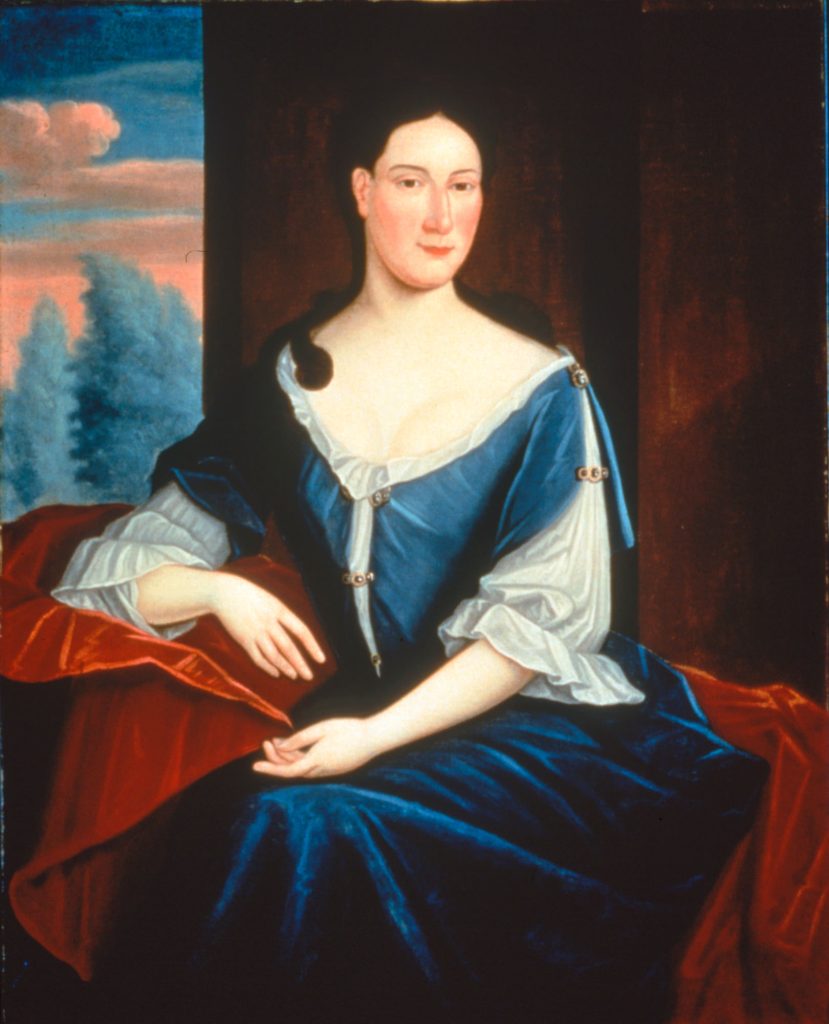Eldest child of Moses Raphael Levyand his first wife, Richea Asher, Bilhah Abigail Levy was awell-read, literate Jewish woman whose letters provide one of themost complete and dynamic portraits available of the lives of Jewishwomen in early America. Abigail, as she was commonly known,frequently wrote to her absent eldest son, Naphtali, to discussmatters political, social, familial, American and Jewish. Thenumerous surviving letters of this correspondence of the 1730s and1740s provide valuable insights into Jewish life in the BritishAmerican colonies.
Born in London, where she spent her first eight years, it wasnevertheless in New York that she would spend the bulk of her life –although after a painful incident later in life she would write ofher desire to leave that city behind. Abigail’s parents providedher with a classical education, evidenced by the references tomythology and classical learning found peppered throughout herletters and by the strong engagement she maintained with contemporaryliterature —Fielding, Dryden, Montesquieu and Pope were among herfavorites. In 1708, when Abigail was twelve, her parents took in ayoung boarder recently arrived from London named JacobFranks. Four years later, when she was sixteen, Abigail wouldwed this young merchant.
Abigail and Jacob would have nine children together, of whom sevensurvived to adulthood. It wasthese children who served as the primary focus of herattention. Abigail sought to provide her children with an educationclose to what she herself had received. At the same time, it wasequally important to her that her children move in the right circlesof New York society while maintaining an essential commitment toJudaism. She prided herself on her own observance of the Sabbath, aswell as her frequent attendance at synagogue services and the strictlevel of kashrut she maintained at home. She would send koshermeat to son Naphtali in London and advised him against eating in herbrother Asher’s house because of his carelessness about kashruth.Yet, despite her best efforts, two of her children married non-Jewsand this caused her acute pain. When itfinally came to light in the spring of 1742 that daughter Philahad secretly wed Oliver DeLancey in September of 1742, Abigail quittown and, avoiding even the family’s country home in Harlem, leftfor Flatbush. There she composed a pained letter to Naphtali, soovercome with grief that she complained, “I can hardly hold my Penwhilst I am writing.” Abigail never again spoke to Phila. As forher son David, who married Margaret Evans, she wrote, “for my part,if I cant throw him from My heart I Will by my Conduct have theAppearance of it[,] its a Firey Tryall.”
Nevertheless, although she disapproved ofintermarriage with Gentiles and embraced certain forms of religiousobservance, Abigail had little patience with conformity for the sakeof appearance. “I must Own,” she wrote in 1739, “I cant helpCondemning the Many Supersti[ti]ons we are Clog’d with &heartly wish a Calvin or Luther would rise amongst Us I Answer formyself I would be the first of there followers for I dont thinkreligeon Consist in Idle Cerimonies and works of Supperoregations.”The society of the small Jewish community of New York aroundcongregation Shearith Israel was frequently not to her taste. “AndIndeed I don’t offten See her,” Abigail wrote to Naphtali,gossiping about a member of the community, “Nor any of our Ladysbut at Synagogue for they are a Stupid Set of people.” Yet she wasvery much at the center of this community, with both her father andher husband serving the synagogue as parnas. When she diedat New York in May 1756, six months shy of her 60thbirthday, she was blissfully unaware that her children wouldeventually abandon the America she staunchly defended against her sonNaphtali’s affected air of English superiority for a return toEngland.
